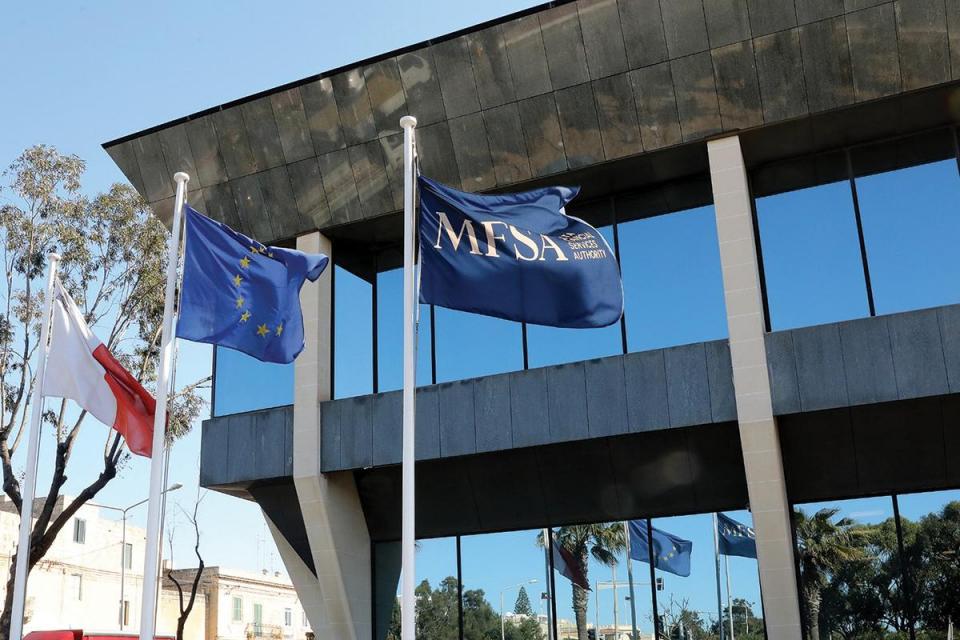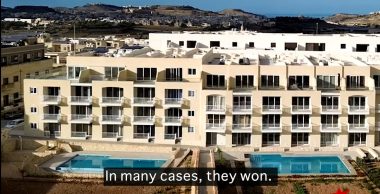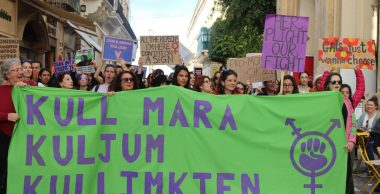The FATF’s greylisting verdict crashed loud and hard into the certainties of Robert Abela and his government. Suddenly, the pink elephant in the room called ‘Money Laundering’ spoke: momentarily wiping away the 48,000 vote advantage of the latest polls, the prospect of a ‘normal’ summer and the speed of the vaccination programme, and seriously putting a damper on the prime minister’s press-confidence.
Labour will most probably survive this too, although – unlike the Daphne Caruana Galizia assassination and countless scandals across various ministries – a verdict such as that of last week will seriously dent business confidence, also because getting off the grey list means more regulation, referred to in business circles as ‘bureaucracy’.
There’s the tragic possibility of thousands losing their jobs in various sectors, which is why I have the same degree of sympathy for those celebrating the FATF verdict as I have for those baying at ‘traitors’. As always, the consequences for misdeeds and blunders at the top will be borne by those at the bottom.
As taxpayers and workers, we need to thank the sleazy tide of deregulation that has submerged, shorted and corroded most institutions and authorities. The MFSA, the Planning Authority and the Malta Gaming Authority have a lot to answer for in their respective fields, especially since it is an open secret that these are but three government authorities who have served as mere rubber stamps to any sort of money, dirty or not, that has made it into the island’s economy in recent years.
Successive administrations have their degrees of responsibility, too. Both the PN and the PL have, for example, relaxed building regulations and followed it up by respective tax amnesties. Statistics show that in 2007, a total of 11,373 planning permits have been issued, with 12,885 issued in 2018, Labour’s ‘golden year’ for construction.
I don’t bring up the subject of construction casually.
For a sector that contributes far less to the GDP than the doctored 13.5 per cent trumpeted by the MDA, the construction sector has been one to benefit from deregulation across the board.
Labour successfully flirted with the lobby pre-2013, choosing to split the Planning Authority and the ERA (critically weakening the latter) in a bid to ‘reduce bureaucracy’ – the idea here being to discourage obstacles to the planning process from residents and NGOs alike, for example.
Sadly, those peddling the narrative of Malta as a tax haven have shown no interest in construction as a crucial gateway for money laundering, as if it were pure fantasy. Stories from neighbouring Sicily, or further north in Naples, Rome, Milan tell of repeated deregulation and breaches of the laws to facilitate the construction of new boroughs from the local mafias, some built on weak concrete financed by dirty money.
I find it rather pointless to yell and print books about the mafia state without looking beyond the administrative sphere. I, for one, have huge questions about developers who have appeared out of nowhere, apparently without any history, who have dotted the islands with towers and apartment blocks. Is anyone looking at mysterious sponsorships from such developers, including regatta or football clubs, for example?
The movement of huge money into construction is facilitated by the complacent Planning Authority and Lands Authority, where anybody can literally ask to build a gigantic tower and get their way.
In Malta, and the FATF should know this too – a tycoon can splash millions of euros worth of concrete onto our living spaces without declaring the famous source of income.
Right now, no authority is tasked with overseeing, far less enforcing, the flow of money into construction.
Back in December 2019, at the peak of the protests in the aftermath of the chilling news about the Caruana Galizia investigations, I attended a session with an MEP delegation led by Roberta Metsola.
The session, organised for civil society groups, debated rule of law including money laundering. And while most speakers stuck to the established narrative that Labour was solely responsible for the mess we’re
in (I’d only argue with the ‘solely’ here), I raised the issue of dirty money filtering into construction via planning
Nobody as half as flinched at this; my intervention was not included in the minutes, and everyone looked away from this huge, wide-open back window.
Now that the FATF lady sang, the government wants to be seen to be doing the right thing. That the anti-money laundering body has indicated a lack of enforcement should not come as a surprise. It is in our blood to be as lax as possible, conveniently put it down to culture, then resort to the usual hypocrisy: from simple traffic infringements to large-scale larceny, the authorities are only strong with the weak.
Incidentally, the Commissioner for Voluntary Organisations is heading his own AML crusade with an asphyxiating legal notice aimed at NGOs.
Anthony Abela Medici knows as well as I do that NGOs cannot be bundled together. Maybe he would like to fight money laundering in the appropriate setting. Why not investigate the ‘foundations’ strewn across various addresses in Valletta?
A look at the façade of their registered addresses will confirm that some of these doors haven’t been opened in years, and the commissioner may also be interested in the names of people close to power: politicians’ wives, cousins, partners, friendships from school. The functions of most of these foundations are yet unknown, except for one or two intent on financing pro-life groups.
Besides this piece of advice to the commissioner, I’ll give him another recommendation: don’t even try to strangle civil society’s freedom of activity.
Go after the big fish. They’re the enemy, the real ‘traitors’.




